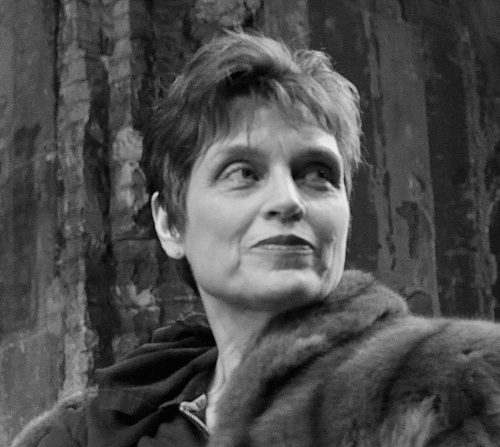
During her twelve years at Carleton, Associate Professor of Dance Judith Howard has observed the dynamic conversations around understanding gender, and has witnessed gender become something more than political. For many in our community, gender has become publicly personal. Through her dance piece Central Supply, Professor Howard invites the public to explore the idea of gender, conceptions of identity, and what it means to find refuge in and from our society.
Central Supply is a continuously developing piece and began as a component of a larger collaborative dance project called ICON SAM, which was a location-based performance, making use of doorways, hallways, and windows of The Cowles Center for Dance & the Performing Arts, located in a former Masonic temple in downtown Minneapolis. The project served to bring attention to the past and present history of the building and to connect the communities in and around this urban landmark. The project Central Supply was originally commissioned by Sally Rousse, Artist-in-Residence at the Cowles Center, and debuted in the Twin Cities in June 2018. Since then, Professor Howard has adapted the performance to fit in Carleton spaces, and to address ideas of inclusion and transition within the Carleton community. Through the Public Works Initiative, Professor Howard has brought Twin Cities professional artists and Carleton dancers together in a performance piece that explores ideas of gender fluidity and identity as performance.
The very nature of Central Supply is to untangle the complicated relationships between the spectacle and the ordinary, and to examine how gender itself is a social performance we all participate in on a daily basis. From Professor Howard’s perspective, the difficulty of the piece is not the content, as she is confident students and community members at Carleton are prepared to engage with this weighty topic. The challenge, Professor Howard believes, is in the technical structure of the performance, and finding ways to use the human form to capture an essence of being unmarred by negative preconceptions. Often, when we see bodies, we quickly but make assumptions and project stories onto those bodies, and that is a great challenge within the world of dance. Professor Howard is working very carefully with her troupe to combat preconceptions about the human form. It is important to Professor Howard to highlight a variety of bodies and identities within her piece, as a central theme of this performance is fluctuating identity and how it is expressed.
In a technical sense, Central Supply requires fine-tuned improvisation, as each iteration of the dance is unique to its featured dancers. However, improvised dancing is highly advanced, and demands both skill and confidence, two traits Professor Howard nurtures in her students. To help students develop their technique for Central Supply, Professor Howard has invited professional dancers from the Twin Cities to mentor her students, pairing people based on their specific interests and expertise. “There is a place for everyone,” emphasizes Professor Howard.
As an instructor, Professor Howard’s main priority is to meet students where they are and help them grow as individuals and as art makers. As an artist and producer, Central Supply is as much about personal statement as it is about research. For dancers, research is conducted through movement, and exploring dance is a tool for developing our recognition and appreciation of the mind-body connection. As with most forms of artistic expression, Professor Howard accepts the risks associated with public performance. There is a risk of being misunderstood, there is a risk that the audience will disengage or criticize, but these are the precise topics Professor Howard wants to confront with Central Supply. Professor Howard hopes her students feel a sense of ownership in their performance, and that they can participate in its ongoing development and defend it conceptually.
Central Supply will be performed by Carleton’s Semaphore Repertory Company during their annual dance showcase this spring. Students dedicate nine hours of preparation per week as their commitment to Semaphore. Through her partnership with Public Works, Professor Howard has been able to offer her students more connections to the Twin Cities dance community and help all participants acknowledge the relationships between community and location as well as performers and audience members.
